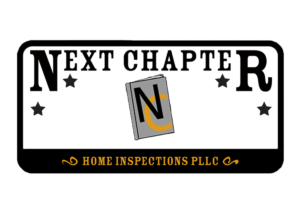Home Inspection Tips for Buyers
When you hire a home inspector to assess a home you are about to buy, you put your fate in that person’s hands. The home inspection guides your decision on whether to go ahead with the purchase or not. A home inspection lets you proceed with confidence and can result in a lower sales price. And as Bigham and Associates explains, it decides your maintenance expense in the years after you pay for the property. And your future happiness in the home may depend on it.
That is why the steps for selecting the home inspector and conducting the inspection are critical. The way you approach them influences how much you get out of the process. In this article, we explain what to do when you want to inspect a home you are about to buy. Following these steps will give you a measure of control over the inspection outcome and get you the best value for your money.
1. Do not skip the home inspection
Some buyers view the inspection as optional. It is not; every home should have an inspection before it is paid for, even if it is a new construction home. No home is perfect, and even if a buyer feels reasonably confident about the home’s condition, it does not hurt to have definite info about specific problems. Buyers should approach the home inspection as a business decision that helps to reduce their risks.
2. Do not hire the cheapest inspector
If they do not skip the inspection altogether, some buyers will hire the cheapest inspector they can find. All home inspectors are not equal. A simple internet search will reveal stories where a home inspector failed to detect fundamental problems in a home before paying for it. That often happens because the inspector did not have the right equipment or enough experience. Buyers who try to save a few hundred dollars by hiring a cheap inspector may pay thousands of dollars in future home repairs.
3. Do not fail to attend the inspection
Many buyers misunderstand the home inspector’s role. They assume the inspector will tell them whether they should buy the home or not. A home inspector will never do that. The inspector’s job is to give the buyer a professional assessment of the condition of the house. The decision to go ahead with the purchase, cancel the deal, or renegotiate the price is the buyer’s responsibility. To make a good decision, the buyer needs to understand the inspection report. Attending the inspection will facilitate that understanding.
4. Ask questions but don’t get in the way
Some buyers do not accompany the inspector on their rounds. Other buyers who accompany the inspector do not ask enough questions. Yet others, who accompany the inspector and ask questions, get so involved in the process that they get in the inspector’s way. It would be best if you did not do any of these. Home inspectors want buyers to accompany them and will be happy to answer the buyer’ questions. But getting overly involved in the process will interfere with the inspector’s work, distract them and sour their mood. These can adversely affect the inspection result.
5. Read the report
Home inspection reports are bulky, and reading them can be challenging because they contain unfamiliar things for an average person. But the report has to be read and understood. Failing to do this can cause you to walk away from a great deal because the home has minor issues. Or it can lead you to buy a home that you will spend tons of money trying to fix. The report guides you in which problems to focus on and which to overlook. If you do not read the report, the home inspection fee you paid is a waste.
6. Get specialty testing where necessary
The home inspection offers a broad overview of the condition of the home. Home inspectors will not do in-depth inspections of specific home components; that is the job of a specialist inspector. The inspector may flag items – such as the roof or foundations – and request further testing to ascertain if there is an excellent reason to be worried. In their desire to save money, buyers may choose to ignore the warning and go ahead to pay for the home. Or they may walk away from the purchase. The best option is to get a specialist to investigate the problem further.
7. Re-inspect all repairs
Finally, after reading the report, buyers may renegotiate with the seller and request the seller to make specific repairs. If the seller agrees, the buyer should make the finalization of the purchase contingent on the re-inspection of all requested repairs. Re-inspecting repairs will ensure that there was a complete resolution of the problem. Without this step, buyers only rely on the seller’s word. But re-inspecting repairs ensures that the buyer keeps their end of the deal.
Following these steps with your home inspection will do two things for you. If you decide to buy the home, you will know what you are getting into. But if you choose to terminate the purchase agreement, you will have no doubts that you took the right decision.





